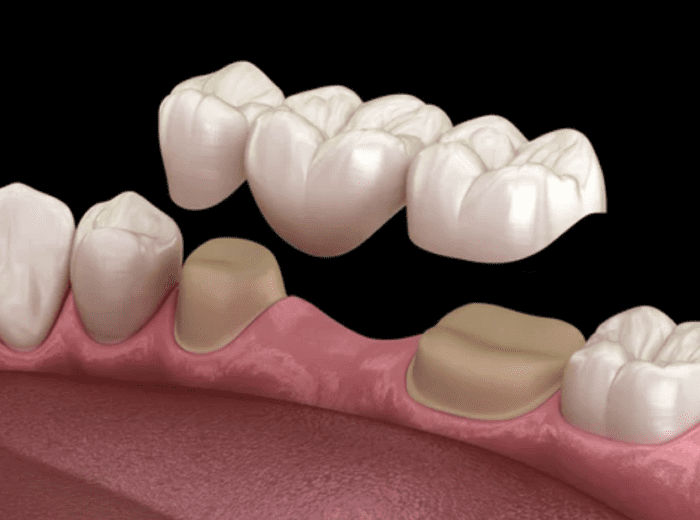Dental bridges are a popular and effective option for replacing missing teeth. They are composed of two or more dental crowns that anchor to the adjacent teeth and a pontic, which is the false tooth that replaces the missing one. Dental bridges offer many benefits for your oral health and overall well-being. Additionally, dental bridges can improve oral function, speech, and aesthetics.

Benefits of Dental Bridges
One of the main benefits of dental bridges is that they restore your ability to chew and speak properly. Missing teeth can make it difficult to chew food, resulting in digestive problems. In fact, they can also affect the way you pronounce certain words. Filling the gap left by missing teeth can help to restore the natural alignment of your bite and make it easier to chew and speak.
Another advantage of dental bridges is that they prevent your remaining teeth from shifting out of place. When a tooth is missing, the surrounding teeth can drift into the gap. This can cause misalignment, bite problems, and other dental issues. As a result, dental bridges help to keep your remaining teeth in their correct positions, preventing further dental problems.
Dental bridges also provide aesthetic benefits. This is because missing teeth can affect your confidence. As a result, dental bridges can help to restore your smile and boost your confidence. This is because they look and function like natural teeth. In fact, your dentist can customize the dental bridge to match the color, shape, and size of your existing teeth. This will ensure a natural and seamless appearance.
Keeping Your Mouth Healthy with Dental Bridges
Maintaining good oral hygiene is essential when you have dental bridges. Food particles and bacteria can get trapped between the pontic and the surrounding teeth, increasing the risk of tooth decay and gum disease. To keep your dental bridges and surrounding teeth healthy, it’s important to follow a strict oral hygiene routine.
You must brush your teeth twice a day with a soft-bristled toothbrush. Moreover, you should brush all surfaces of your teeth, including the areas around the dental bridge. In addition, you need to floss at least once a day, using threaders to clean under the pontic and between the adjacent teeth.
Avoid sticky, chewy, or hard foods that could damage the dental bridge or surrounding teeth. Although dental bridges shouldn’t move while eating, certain foods can damage the dental crowns. This can cause the bridge to break or come loose.
It is vital to visit your dentist regularly for check-ups and professional cleanings. Dr. Sousa can examine your dental bridge and surrounding teeth for any signs of decay or gum disease and recommend any necessary treatments.
Dental bridges offer numerous benefits for your oral health, including improved function, aesthetics, and preventing dental issues. Maintaining good oral hygiene is crucial when you have dental bridges to prevent decay and gum disease. With proper care, dental bridges can be a long-lasting solution to replace missing teeth and enhance your quality of life.
